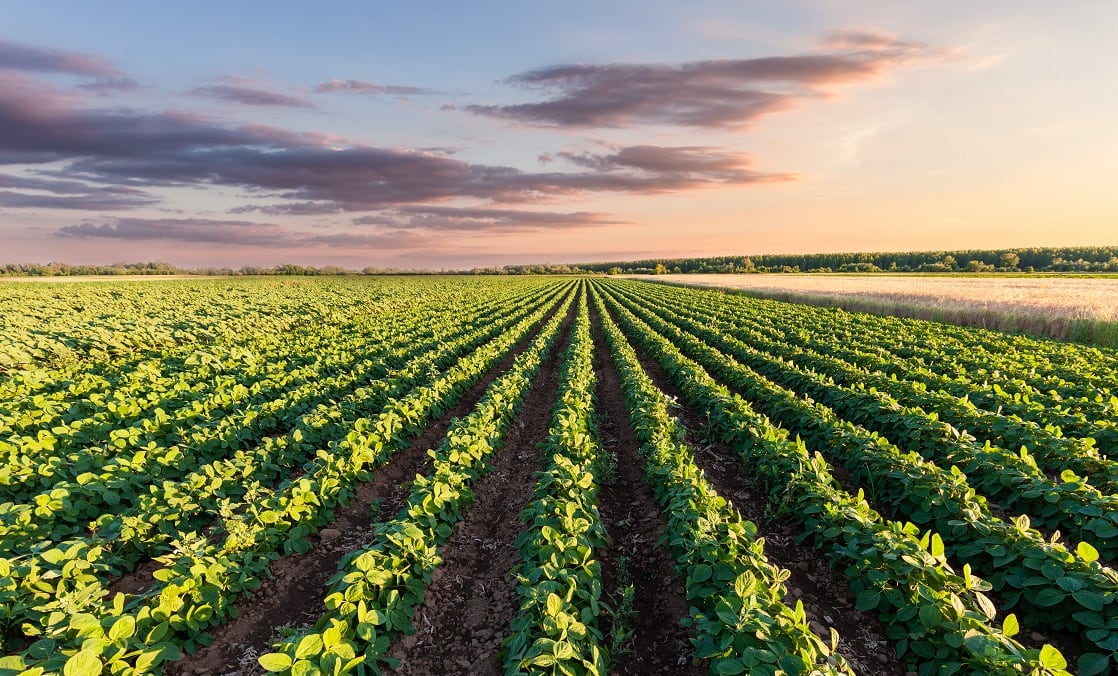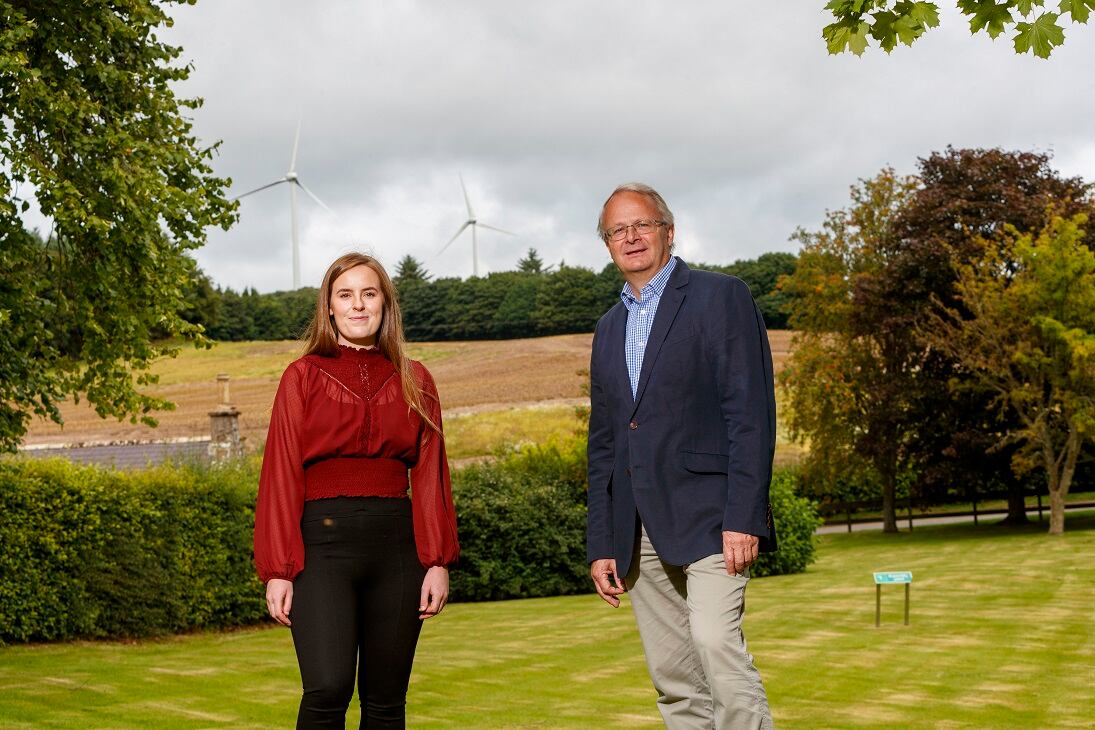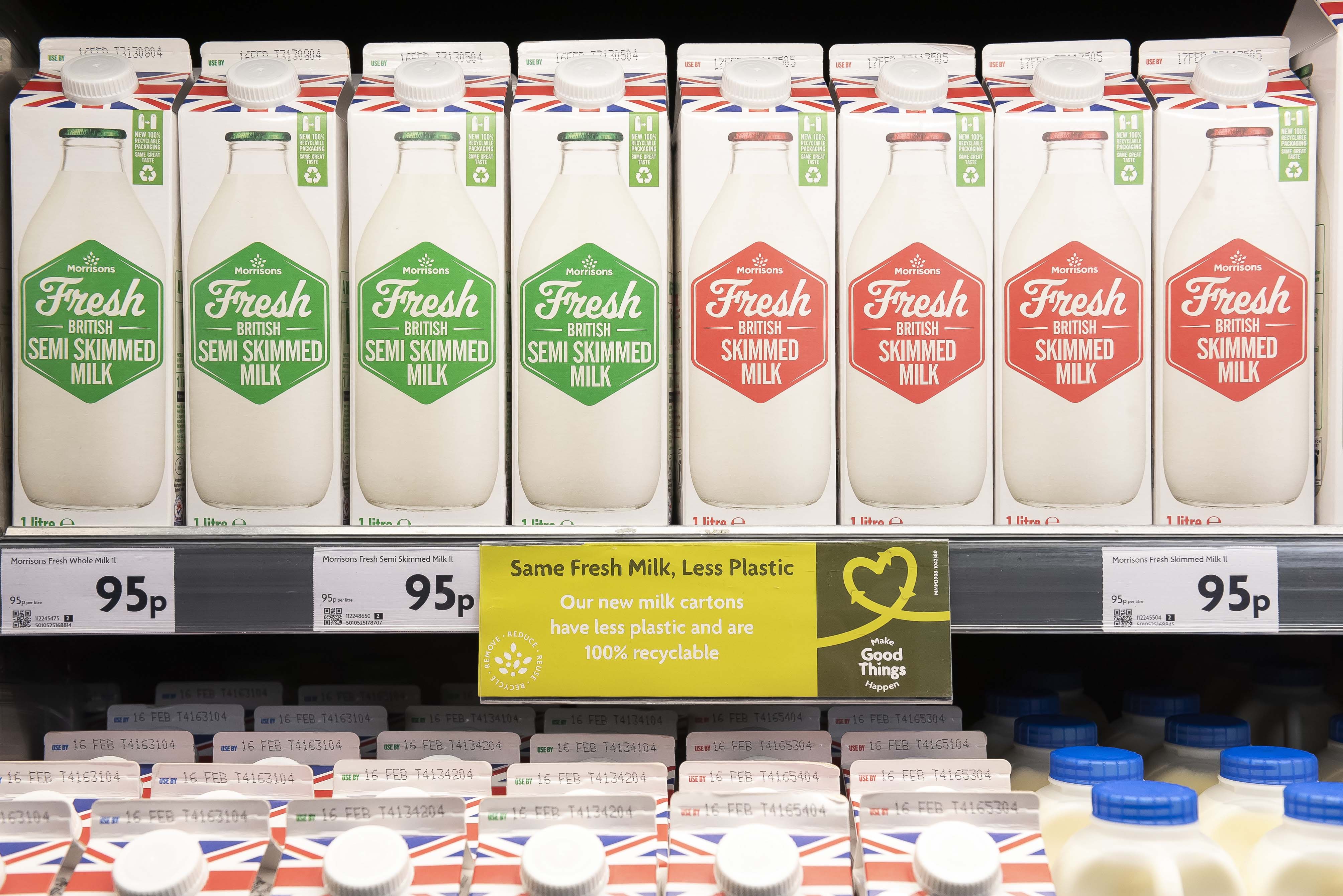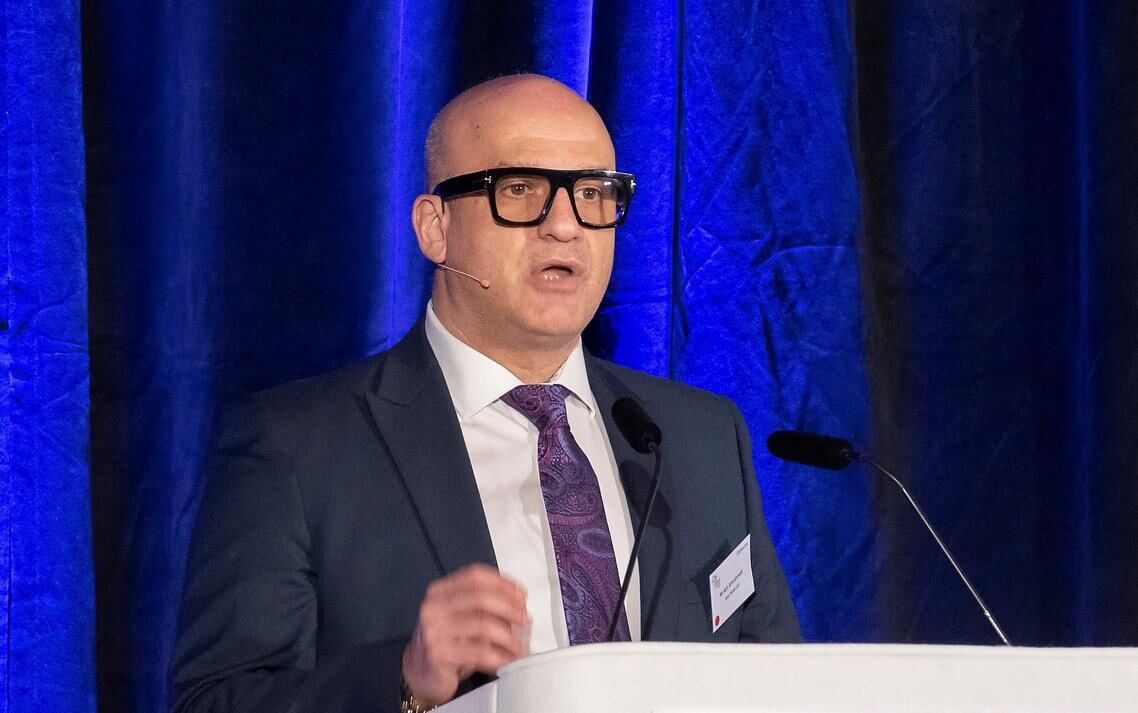While this has been driven, in part, by increased consumer scrutiny, there is also a move towards running more sustainable businesses as well as the push from UK Government with its new packaging tax and net zero carbon policies.
But the supply chain remains volatile and is still recovering from the impact of the pandemic, and more issues are likely to come into play with the war in Ukraine and sanctions against Russia.
This week the boss of one of the world's biggest fertiliser companies told the BBC that the conflict in Eastern Europe would deliver a shock to the global supply and cost of food.
'Catastrophe'
Yara International chief executive Svein Tore Holsether described the war as 'a catastrophe on top of a catastrophe', highlighting just how vulnerable to shocks the global food supply chain is.
There’s no doubt there will be increased pressure on food and drink supply chains but the good news is that a number of companies have already revealed their sustainability credentials, focusing on a range of initiatives.
Danone UK & Ireland has committed to action on its supply chain, from how ingredients are grown and how products are made and distributed to what happens once people have used them.
Deforestation-free
Greencore Group has committed to a deforestation-free supply chain by 2025 and all raw materials will be sustainably sourced by 2030.
Coca-Cola Europacific Partners has been using 100% renewable energy for more than 10 years and has implemented a number of packaging initiatives, such as its transition to its on-the-go bottles to 100% recycled polyethylene terephthalate (rPET). And PepsiCo revealed last year that it had set ambitious 2030 targets for sustainable farming and has committed to regenerative farming practices.
But the challenge of sustainable resources remains, with the pressure increasing as a result of the current world situation and fall-out of the pandemic.
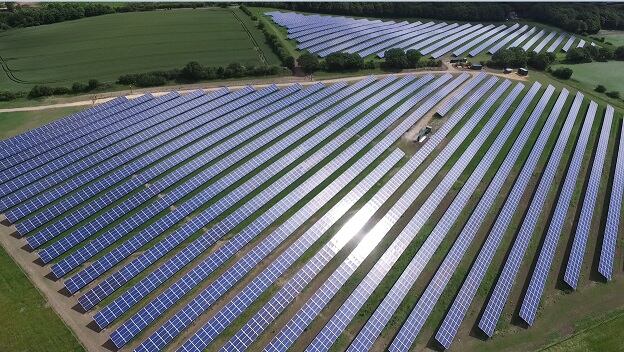
Huge challenges
Alan Gove, managing director of Naturalis People, the consultancy firm that works with sustainably-led food and consumer businesses, says that ‘without a doubt’ the pandemic has created huge challenges for food and drink processors.
“Supply chain issues have made moving products from A to B more difficult and the entire process has been hindered thanks to border closures and basic manpower requirements,” he says.
Despite the challenges he argues the move away from plastic packaging, end-to-end traceability, the general deployment of greener business practices, shortening supply chains and reducing carbon footprints has made a noticeable difference to the food sector.
“Consumer eating habits have also changed, and this has affected and driven initiatives within the sector,” he says. “Healthier labelling has in part been influenced by the demand for healthier choices and move for many consumers towards eating cleaner and dietary changes such as veganism and vegetarianism.”
Animal welfare
This is a view supported by Compassion in World Farming, which says it is not just consumers but many food companies that are looking at the impact they have on climate change.
“In addition to carbon emissions, its impact on land and water use, and on deforestation and biodiversity loss are immense,” Jones says. “And of course, Compassion remains concerned about the impact of the vast number of animals farmed globally and the welfare of those animals.”
What the pandemic did do was speed up the introduction of many initiatives and allowed businesses more time to recognise the changes that were needed to meet their environmental and sustainable targets. But establishing and maintaining more sustainable and secure supply chains remains a struggle.
There are other essential parts of sustainability like nutrition and health, economics and culture
Kerry Foods
Juan Aguiriano, group head of sustainability at Kerry Foods, says that typically, when people think about sustainability, their first thought is about the environment for example water use and waste.
“Still, there are other essential parts of sustainability like nutrition and health, economics and culture,” Aguiriano says. “Brands will need to communicate sustainability in a more holistic way to engage consumers in the future.”
He highlights the launch of its new dairy sustainability programme Evolve, which will provide support to farmers in its supply chain to make raw materials more sustainable.
Sustainable farming
“Over 3,000 farm families across the south west of Ireland will benefit from the initiative which will provide technical and financial support to the company’s milk suppliers to help them transition to more sustainable farming practices,” he says.
“Areas of action targeted as part of the programme include efficient energy use, knowledge transfer, grass management, herd health, biodiversity, production efficiency and soil and fertiliser management. The potential incentive for the average milk supplier is up to €2,000 per herd.”
But Aguiriano believes it’s not just the sustainability of raw materials that needs to be tackled.
Food waste
“Today, 30% of food is wasted. If, as a society, we can reverse the trend of food waste there would be more than enough food to feed the world,” he adds. For more on that issue, look out for Food Manufacture's forthcoming feature on waste management, due for publication on 11 March.
The issue of ingredients is also one that hits this sustainable supply chain for Kerry. It says that while it purchases a large variety of food ingredients from all over the world it engages with third party risk assessors to ensure it upholds the highest standards.
While food manufacturers, such as Kerry, have strong sustainability credentials, the issues of palm oil and soy remain at the front of the sustainability debate because of their association with deforestation.

Palm oil
Gary Lewis, president of National Edible Oil Distributors Association (NEODA) and head of business, oils and fats at KTC Edibles says over the last few years there has been progress on sustainable palm oil.
“At NEODA, we’ve now made sourcing certified sustainable palm oil part of the rules for membership,” he says. “At KTC, we’ve been actively pushing our customers to choose certified sustainable products for several years, and the uptake has been overwhelmingly positive. In 2022, all the palm oil KTC sells in the UK will be RSPO certified segregated sustainable.
“We’ve now reached the point where for most manufacturers, certified sustainable has become the norm.”
Soya
Lewis says this is a blueprint for change that can now be applied to other commodities such as soya. But one major issue is the fact that there isn’t a trusted international certification scheme for sustainable soya, he adds. “There are more sustainable options available than ever before – but food manufacturers have to choose them. The issue they will face is the cost and balancing the value of sustainability against the cost of solutions can be challenging, especially in such a competitive environment.”
Upfield UK&I, the producer of plant-based spreads, cheeses, and creams, takes an approach that measures the impact on both the climate and the environment, with a detailed life cycle assessment (LCA) analysis.
Its products - under brands such as Flora - use ingredients from plants such as sunflower, rapeseed, coconut, sustainable palm fruit and shea. Upfield says it sources ingredients in a way that supports ecosystems and preserves the planet for future generations.
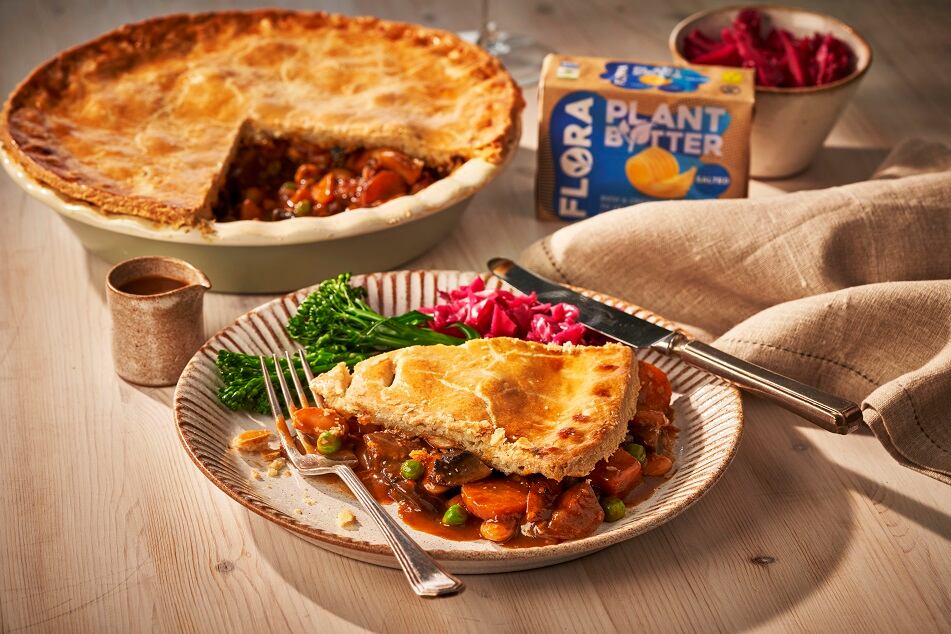
Upfield
“We have worked with one third party and conducted LCAs for our plant margarine and plant-based cheese alternatives, which helps us track every impact our foods have – from seed, to plant, to oil, to tub, to spread,” says Sam Thomas, head of category, at Upfield UK&I.
“These analyses look at ingredients, manufacture, transport and much more. It helps us to improve sustainability along the supply chain.”
Another area that has come under scrutiny is packaging, especially as next month the UK Government will introduce its new packaging tax.
Upfield UK&I says its mission is to continue to lessen its carbon emissions by reducing the use of plastic in packaging.
Packaging
“We currently use paper, plastic and small amounts of metals and glass but our aim is to be 95% plastic-free by 2030,” says Thomas.
“We will also increase recycled content (20%) by 2030, and make sure that every piece of packaging is 100% recyclable, reusable or compostable – and clearly labelled so consumers know how best to dispose of it.”
However, recycling is an area that PFF Packaging Group managing director Kenton Robbins says remains a challenge.
The company, which works with a range of customers from bakeries, dairy to meat processors, aims to create sustainable food packaging solutions for food manufacturers.
Recycling
Robbins issues a note of caution that there will not be fully-integrated sustainable packaging until the whole system of recycling has a better solution and consumers are actually able to recycle products rather than just putting them in the bin.
“A lot of this is satisfying consumer greenwashing in their minds rather than the real issues,” he says.
“We are looking at innovations in terms of the ways we manufacture packaging. We have launched something we have branded Impac-T, a hybrid package pot, which has 20 to 30% less plastic. That is a two-year innovation strand of building a machine with a manufacturer, investing £3.5M without any customer commitment to get to a point that we can launch something.”

'Panacea of excuses'
He says that food and drink manufacturers are a ‘really mixed bag’ when it comes to tackling the sustainability challenge. Some are really focused on this as part of their strategy, but, adds Robbins: “The pandemic has been a panacea of excuses for some businesses to not do what they should be doing.”
He predicts the future will see the continuing trend of hybrid packaging, with reductions in plastics, but argues solutions need to focus on the best packaging for the job, including plastic.
Meanwhile Florence Béliard, global food coatings manager for PPG Packaging Coatings, which was the first coatings company to commercialise non-BPA, non-bisphenol solutions for beverage and food can applications, argues the trend will be a continuing move towards a reduction of packaging.
Metal cans
“I think the metal can business has some great credentials in terms of playing with the major concerns of food waste,” she says.
Béliard, says food and drinks manufacturers are coming up with their own sustainability goals, adding: “There is much bigger momentum through the supply chain.”
But PPG Packaging Coatings faces challenges as there are different regulations across different regions in the world and the focus is on how to design without any materials that are of concern.
Regulatory environment constantly changing
“Technology takes years to bring to the market and highly technical products and regulatory environment is constantly changing,” she says.
The challenges facing food and drink manufacturers are set to continue as the need for a more sustainable supply chain remains crucial.
While food and drink manufacturers are working hard to ensure a secure and sustainable supply chain of raw materials exists the future remains uncertain with the fall-out of the pandemic as well as the impact not just on supplies from Russia and Ukraine.
As Yara International chief executive Svein Tore Holsether told the BBC: "For me, it's not whether we are moving into a global food crisis - it's how large the crisis will be."

